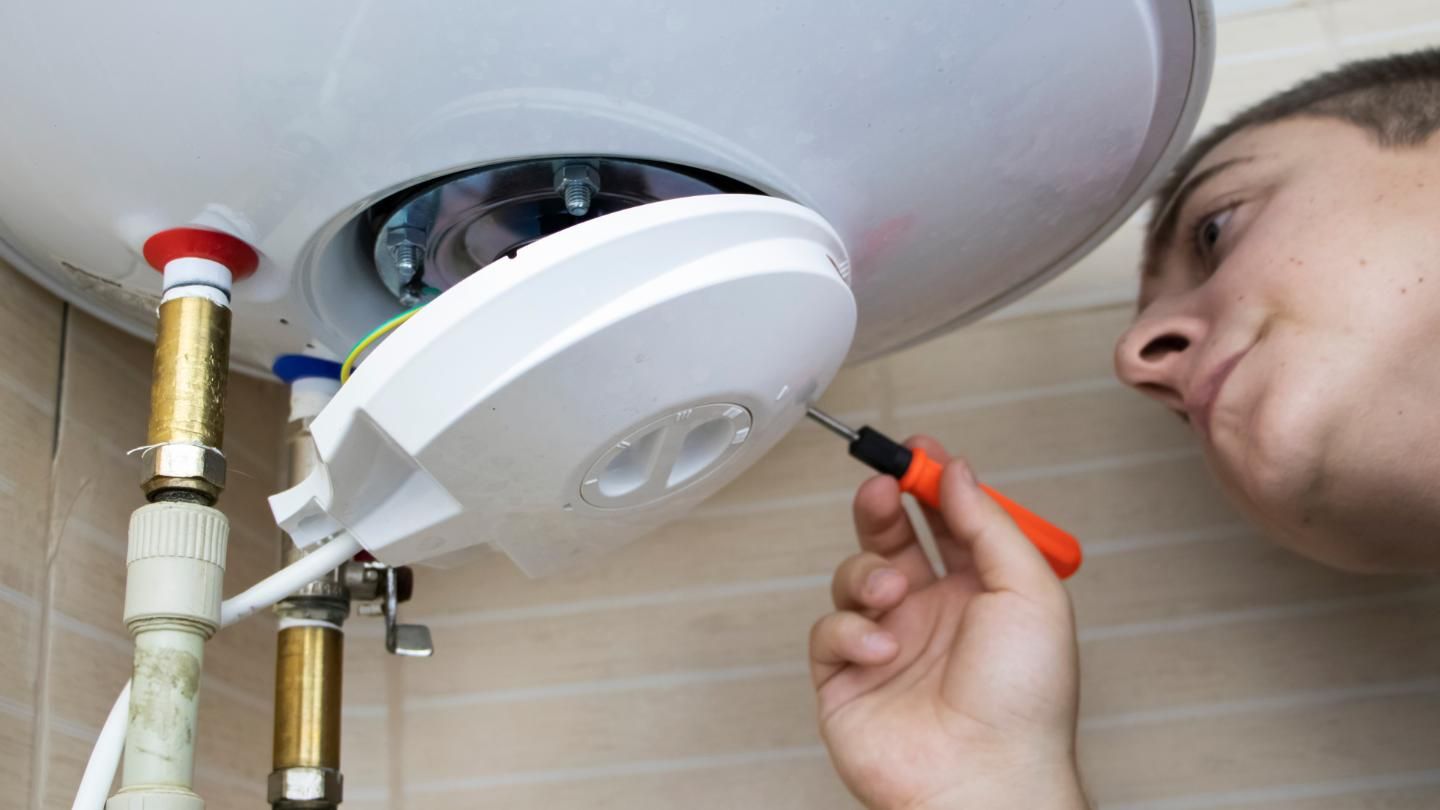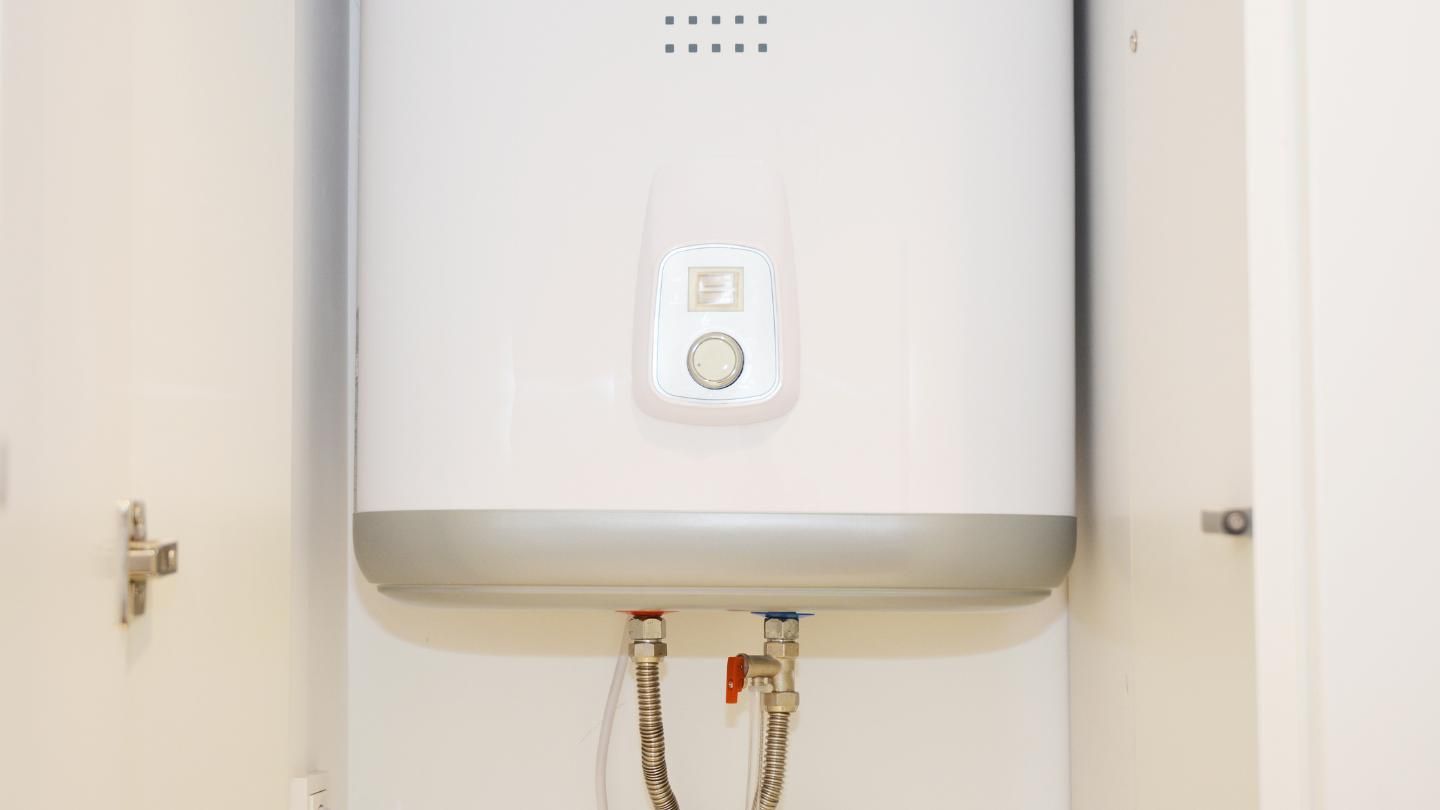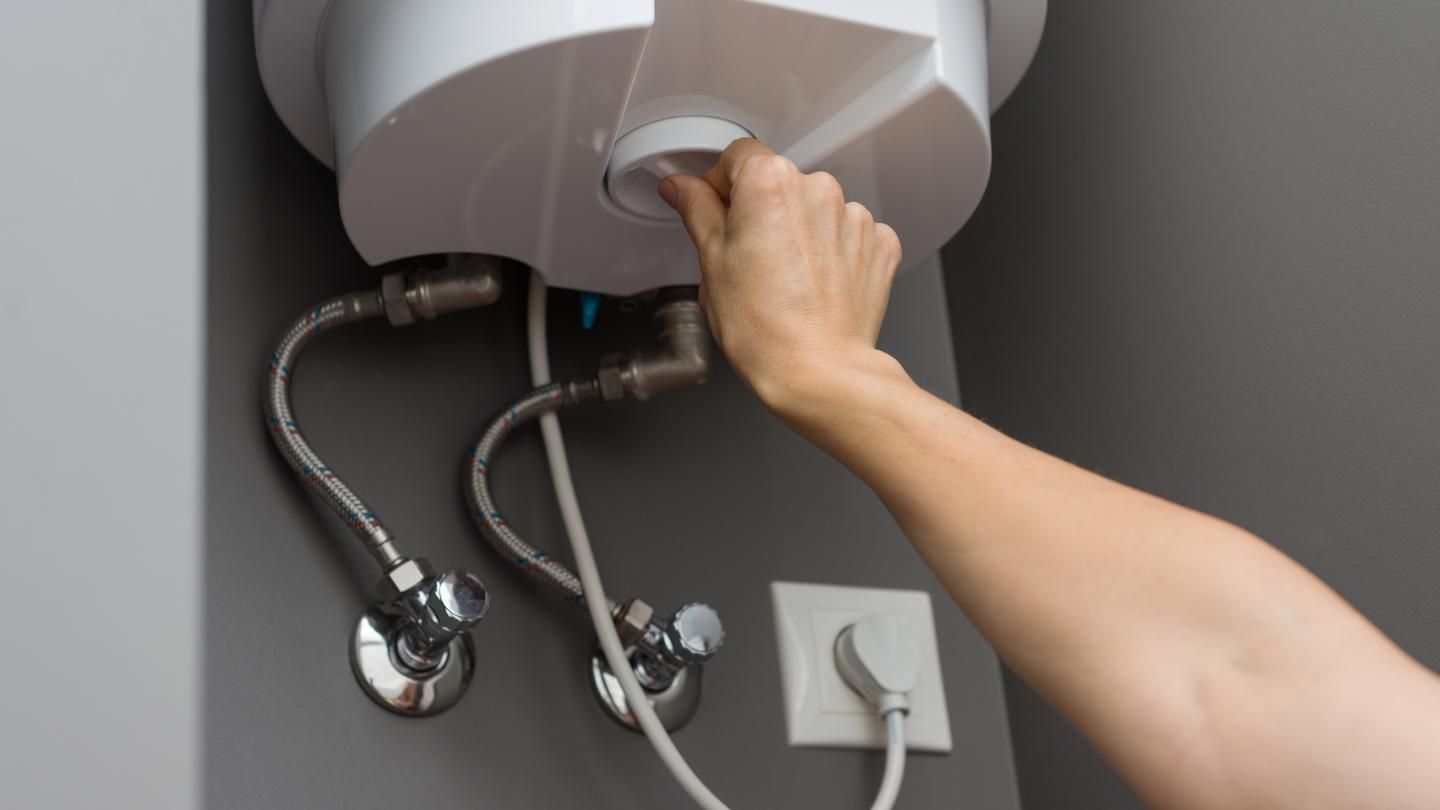Boilers and water heaters both heat water, but they serve different
purposes. Boilers are used to heat your home and provide hot water, whereas
water heaters are designed solely to supply hot water. In this blog, we will
examine the differences between a boiler and a water heater in terms of
function, cost, and maintenance to help you decide which system is best suited
for your needs.
Key Takeaways
- Boilers provide both space heating and hot water, while water heaters focus solely on supplying hot water.
- Installation costs for boilers are higher, ranging from $3,500 to $8,000, compared to $1,000 to $3,500 for water heaters.
- Boilers generally require more frequent maintenance than water heaters, impacting long-term efficiency and lifespan.
Understanding Boilers
In the United States, approximately nine million homes utilize boilers,
which are robust and adaptable systems. Boilers primarily heat water that is
then distributed throughout a closed-loop system to provide warmth and
sometimes domestic hot water as well. Unlike traditional water heaters that
store hot water, boilers continuously circulate the same water, enhancing their
efficiency.
Boilers primarily heat water that is then distributed throughout a
closed-loop system to provide warmth and sometimes domestic hot water as well.
Boilers continuously circulate the same water, enhancing their efficiency.
Modern boiler systems are designed for energy efficiency and ease of use, with
advanced features like user-friendly controls and compatibility with various
fuel types such as natural gas, oil, propane, or electricity. Natural gas is
often favored due to its cost-effectiveness compared to other fuels.
Types of Boilers
There are various forms of boilers tailored to cater to distinct heating
requirements. The main classes consist of combination and conventional boilers.
As a dual-function unit, the combination boiler operates efficiently as both a
water heater and a central heating boiler, which is particularly suitable for
homes with space constraints. In contrast, traditional boilers may incorporate
a tank. These are typically employed in more substantial residences that need
multiple heating systems.
Boilers can be distinguished by their operating pressure levels into
either low-pressure or high-pressure categories. Although numerous models
operate without tanks, there are versions equipped with a tank designed
specifically for storing hot water until needed.
Advantages of Boilers
Several benefits accompany the use of boilers, making them a desirable
choice for homeowners. These include:
- Improved indoor air quality by reducing dust and allergens, benefiting individuals with respiratory conditions.
- Compact designs that combine space heating and hot water functionality without occupying excess space.
- Zoning functions and thermostatic radiator valves for precise temperature regulation across different areas of the home.
However, boilers come with some challenges. The upfront installation
cost is higher than that of water heaters due to the complexity of the system.
They also require regular professional maintenance, including cleaning and
inspections, to ensure operational efficiency. Additionally, the environmental
impact varies based on the fuel type chosen.
Understanding Water Heaters

Water heaters are essential for modern homes, providing hot water for
cooking, cleaning, and bathing. Water heaters focus solely on heating water.
Traditional tank-style water heaters heat cold water and store it in a
reservoir for immediate use. For optimal efficiency, professional plumbing
services ensure proper installation and maintenance, including periodic
inspections to prevent issues like sediment buildup or valve malfunctions.
Advanced options such as tankless water heaters provide instant hot
water on demand, eliminating the need for a storage tank. These systems require
precise installation to ensure proper water flow and energy efficiency, a task
best handled by experienced technicians.
Types of Water Heaters
Numerous water heater types are available, each boasting specific
benefits and uses. The two main categories consist of tank and tankless water
heaters, with heat pump water heaters also being a significant type.
Traditional hot water heaters store heated cold water in a storage tank using
either gas or electricity to power an internal burner - these units have gained
popularity for their straightforward design and dependability.
Alternatively, on-demand or tankless hot water heater systems provide
instant heating as the unit channels flowing cold water through it, thus
negating the necessity of keeping a reservoir of hot liquid. Though more costly
upfront regarding installation costs, these devices offer continuous access to
warm fluids while maintaining superior energy efficiency compared to standard
models.
Lastly, there's an environmentally friendly alternative: heat pump
versions that harness ambient air warmth to elevate temperatures within your
supply—a particularly effective method in milder climates that capitalize on
external thermal resources. Durability differs across various models. Notably,
those opting for tankless varieties can expect around 20-30 years of
serviceable life—representing not just immediate utility but also sustained
value over time.
Advantages of Water Heaters
Water heaters are vital appliances in modern homes, ensuring a steady
supply of hot water for various daily activities. Here are some key benefits of
using water heaters:
- Consistent Hot Water Supply:
Water heaters provide a reliable source of heated water for cooking, bathing,
and cleaning, essential for everyday comfort.
- Energy Efficiency:
Modern water heaters, particularly tankless models, are designed to minimize
energy consumption, reducing utility bills over time.
- Space-Saving Designs:
Tankless water heaters eliminate the need for bulky storage tanks, making them
ideal for homes with limited space.
- Long Lifespan:
With proper maintenance, water heaters can last many years, offering long-term
value and reliability.
Water heaters, with their efficiency and convenience, are indispensable
for maintaining a comfortable and functional household. Whether you opt for a
traditional tank model or a modern tankless system, these appliances cater to
diverse needs, ensuring you never run out of hot water when you need it most.
Key Differences Between Boilers and Water Heaters

In a home, boilers and water heaters have unique functions. Boilers
mainly deliver heat for the entire house through systems like radiators or
underfloor heating and supply hot water. However, they can be complex systems
that require significant maintenance and professional expertise to operate
efficiently. Water heaters, on the other hand, are exclusively designed to
provide hot water for everyday household use without aiding in space heating,
making them a simpler and more straightforward choice for many homeowners.
When it comes to longevity and financial outlay, it's important to weigh
the options carefully. Boilers have a longer lifespan, ranging from 10 to 15
years, which means they can be considered an investment that pays off over
time. However, the complexity and higher maintenance needs might be a deterrent
for some. Water heaters, typically lasting between 13 to 17 years, offer a more
budget-friendly upfront cost, making them an attractive option for those
looking to economize.
Installation Costs
The expense of installing a boiler system varies considerably, with
prices typically falling between $3,500 and $8,000 based on the system's design
and dimensions. The steepness of these costs can be attributed to the intricate
nature of boilers, which frequently necessitate expert installation procedures.
This complexity underscores the importance of relying on professional services
to ensure proper setup and functioning.
Conversely, water heaters present a more cost-effective choice in terms
of installation expenses, as they tend to range from just $1,000 to $3,500.
Although this makes water heaters an attractive option for homeowners looking
to economize upfront, it's crucial not only to think about immediate costs but
also to factor in potential long-term energy savings and efficiency benefits
when evaluating these alternatives. Professional installation is recommended to
ensure optimal performance and prevent common issues.
Efficiency and Energy Consumption
Efficiency and energy consumption vary between boilers and water
heaters. Boilers are often more energy-efficient because they provide dual
services—space heating and hot water—using advanced technologies like
condensing systems to recover heat that would otherwise be wasted. However, the
need for regular maintenance and professional intervention can offset some of
these benefits.
Water heaters, particularly modern heat pump models, are designed to
maximize energy efficiency by transferring ambient heat into the water.
Tankless water heaters offer further energy savings by eliminating standby heat
loss, but their installation requires expertise to ensure proper flow rates and
temperature regulation. Relying on professional services for installation and
maintenance can help maximize these efficiency gains.
Maintenance Requirements
Maintenance requirements for boilers and water heaters differ
significantly. Boilers demand a more rigorous upkeep schedule, including annual
professional inspections and thorough cleaning, to maintain efficiency and
prevent breakdowns. Technicians also check critical components such as the
pressure valve, heat exchanger, and fuel connections to ensure safe and optimal
performance.
Water heaters, especially tank-style models, require less frequent
maintenance but still benefit from professional care. Tasks like draining
sediment buildup, testing the temperature and pressure relief valve, and
inspecting the anode rod are best handled by skilled plumbers to prevent damage
or inefficiencies. Tankless water heaters require regular descaling and
flushing, which professionals perform to ensure consistent water flow and
extend the system's lifespan.
Choosing Between a Boiler and a Water Heater

Choosing between a boiler and a water heater depends on your home's
heating and hot water demands. While boilers offer dual functionality, they can
be complex systems requiring frequent maintenance and higher installation
costs. In contrast, water heaters provide a straightforward solution, focusing
solely on supplying hot water efficiently and cost-effectively. Professional
plumbers can evaluate your home's layout and recommend systems that balance
performance with energy efficiency, ensuring you get the most out of your
investment.
Tankless water heaters are ideal for homes with high water usage,
offering continuous hot water on demand. This system eliminates the need for a
bulky storage tank and is known for its energy efficiency. Traditional water heaters
are more suitable for moderate water needs and offer a budget-friendly
installation cost. A professional assessment ensures you select a system
tailored to your household's requirements and energy goals, maximizing
efficiency and minimizing unnecessary expenses.
Home Heating Needs
When evaluating the heating requirements of your home, it's important to
distinguish whether you need space heating or solely hot water. Boilers, while
capable of providing both, often require more maintenance and professional
intervention to operate efficiently. On the other hand, tankless water heaters
excel in delivering an ongoing flow of hot water without the complications of a
boiler system, making them an excellent choice for homes focused on hot water
supply.
For those who primarily require a consistent supply of hot water for
appliances, incorporating a tankless unit ensures high-performance levels
without sacrificing efficiency. Recognizing how your household consumes heat
will guide you towards providing an efficient and economical means to ensure
that there is always hot energy efficiently available when needed.
Budget Considerations
Budget considerations play a crucial role in selecting a heating system.
While the upfront cost of a boiler is higher, ranging from $3,500 to $8,000, it
also often necessitates ongoing professional maintenance. Water heaters, on the
other hand, offer a more budget-friendly installation cost, typically between
$1,000 and $3,500, and are easier to maintain. Homeowners should consider both
immediate expenses and potential long-term savings from energy-efficient
systems.
Advanced heating systems with features like modulating firing rates can
lead to significant energy savings over time. Professional plumbers can help
identify energy-efficient options that align with your budget and heating
needs, ensuring optimal performance and peace of mind without the DIY hassles.
Conclusion
Deciding on the ideal heating system, whether it's a boiler or a water
heater, plays a vital role in maintaining household comfort and optimizing
energy efficiency. By grasping the differences in functionality, installation
costs, and maintenance needs, you can make an informed decision tailored to
your home.
For expert guidance, installation, or maintenance services, trust A-Total
Plumbing - An Ace Home Services Company. We specialize in water
heater repair near Kennesaw, ensuring your home remains warm and your water
supply is reliable. Experience peace of mind and maximum comfort with our
quality services. Contact us today to get started!
Frequently Asked Questions
1. Can a boiler work
without providing hot water for taps?
Yes, some boilers are designed solely for space heating, but most modern
systems can provide both heating and hot water, making them a versatile option.
2. What factors determine
whether I should choose a tank or tankless water heater?
The decision depends on your household's water usage, space availability, and energy efficiency priorities. Tankless systems are ideal for continuous hot water, while tanks are better for lower upfront costs.

